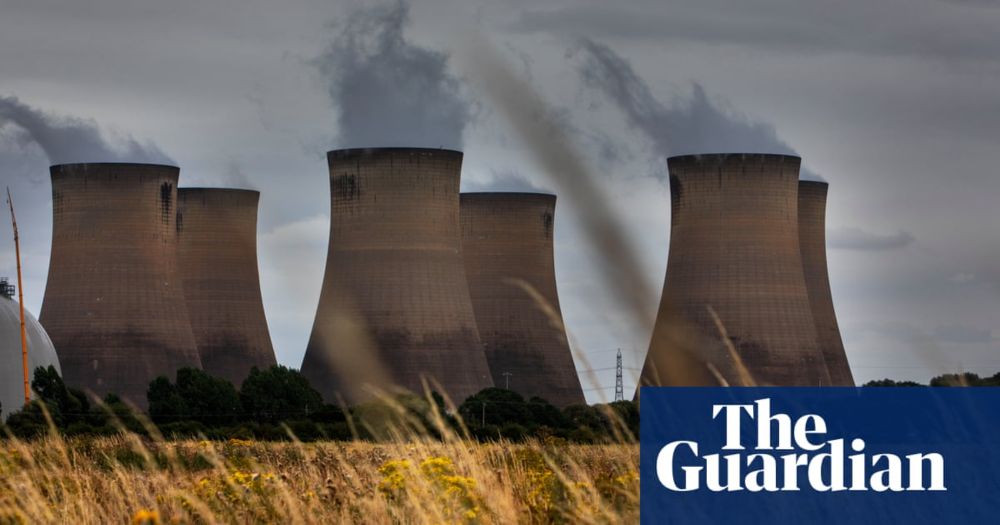LinkedIn
This link will take you to a page that’s not on LinkedIn
Read the full coverage in the Financial Times: www.ft.com/content/fce6...
20.05.2025 10:07 — 👍 0 🔁 0 💬 0 📌 0
Not only would this put money in the backpockets of households across the country, it would drive growth and new jobs: from the skilled heating engineers and retrofitters installing new equipment, to the industrial-scale plants manufacturing insulation and clean heating systems in the UK.
20.05.2025 10:07 — 👍 0 🔁 0 💬 1 📌 0
LinkedIn
This link will take you to a page that’s not on LinkedIn
Labour's Warm Homes Plan would tackle this but now may be cut.
@e3g.bsky.social's @jamesdyson.bsky.social coordinated a letter from 50 businesses calling on the govt to honour its pledge to spend an extra £6.6bn on making British homes more energy efficient.
Read here: www.ft.com/content/fce6...
20.05.2025 10:07 — 👍 1 🔁 0 💬 1 📌 0
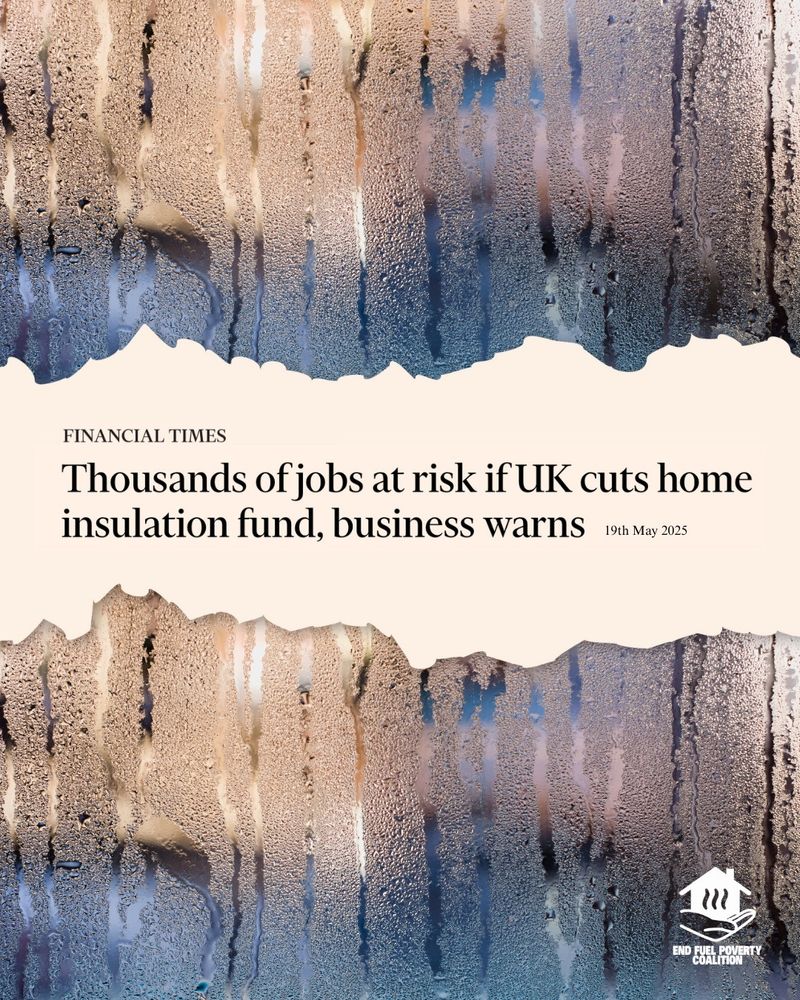
The UK's housing is among the least energy-efficient in Europe. This means it costs more to heat our homes that it needs to and we're wasting money on extra gas and electricity instead of spending it on the things that truly matter.
www.ft.com/content/fce6...
20.05.2025 10:07 — 👍 1 🔁 0 💬 1 📌 0

Cut electricity prices or lose clean industry boom - Energy Live News
Coalition urges Chancellor to shift green levies off bills to unlock growth and drive industrial electrification
“If the UK wants to compete for clean industry and investment, electricity prices must come down,” said Laith Whitwham of E3G. “Moving legacy policy costs into general taxation is a fast, fiscally sound fix.”
Coverage of our letter to the Chancellor:
www.energylivenews.com/2025/05/14/c...
15.05.2025 09:13 — 👍 1 🔁 0 💬 0 📌 0
We say it makes far more sense to pay for these via taxation, where costs are recovered progressively. This will free up business capital to #invest in #electrification and #EnergyEfficiency, and free up cash for low-income households, who are disproportionately affected by the current model.
14.05.2025 09:39 — 👍 0 🔁 0 💬 1 📌 0
What are policy costs? Generally things to help incentivise #CleanEnergy (if you've got #solar you may have had a Feed in Tariff).
Invaluable schemes that helped scale-up #wind and solar, but paying for them via electricity bills is regressive and disincentivises the switch from gas to clean power.
14.05.2025 09:39 — 👍 0 🔁 0 💬 1 📌 0
Why are we asking for this?
High 🇬🇧 power prices are a massive burden for households, especially on low incomes, make it difficult for UK industry to compete internationally, and deter investment into new, #CleanIndustry. Removing #PolicyCosts is a fast and fair way to reduce those prices.
14.05.2025 09:39 — 👍 1 🔁 0 💬 1 📌 0
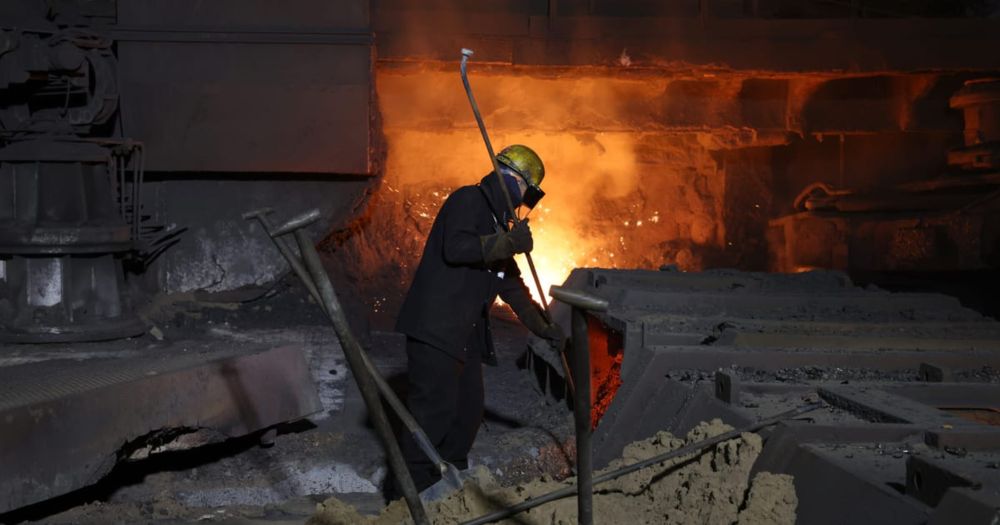
The big unanswered questions from Keir Starmer’s British Steel takeover
How far is Labour willing to go to prop up Britain’s struggling industries? And will it be enough to see off the Farage threat?
As Labour moves to rescue British #Steel, debate over the UK’s industrial future heats up.
E3G’s @laithw.bsky.social says it’s not decarbonisation to blame, but the lack of a coherent industrial strategy.
Read the full piece in @politico.eu here👇
www.politico.eu/article/keir...
16.04.2025 15:56 — 👍 5 🔁 3 💬 0 📌 0
A Starling murmuration, thousands of birds moving as one.
A moment of wonder, a feeling of connection.
What does it make you feel?
#ThoughtfulThursday 💌
13.02.2025 09:22 — 👍 542 🔁 68 💬 14 📌 5
E3G's has just published new research on the cost of hydrogen for home heating and, unsurprisingly, it is not an attractive proposition - unless you own a gas network...
Fantastic research into the cold, hard numbers from @chrisgalpin.bsky.social, with a thread well worth checking out.
11.02.2025 17:13 — 👍 1 🔁 0 💬 0 📌 0
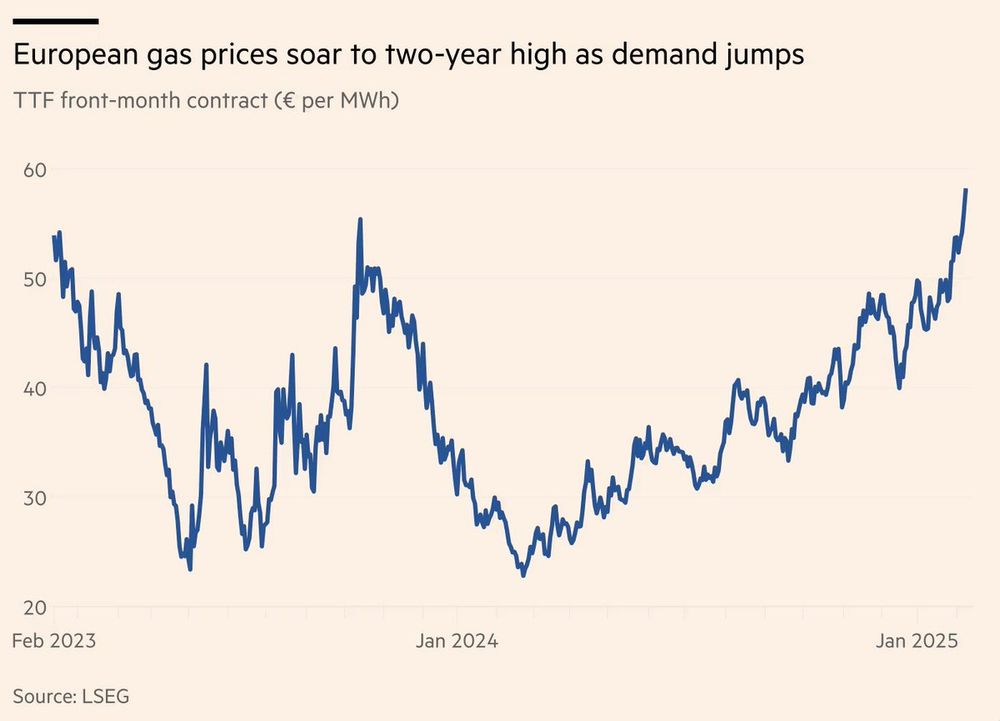
A reminder that the only way for Europe to reduce exposure to volatile fossil gas prices is to significantly reduce gas consumption.
10.02.2025 15:20 — 👍 238 🔁 65 💬 5 📌 4

'Black mould is making my son ill' - the private renters struggling to be heard
Families tell BBC their mould-infested homes are making them ill - Panorama investigates.
Countless renters have similar stories. Appalling landlords think it is Okay to let homes in these conditions.
In one story, Brighton City Council was contacted but did nothing; resource is the problem. We should levy ~£125 / property to fund local enforcement. 1/5
www.bbc.co.uk/news/article...
10.02.2025 10:23 — 👍 3 🔁 2 💬 1 📌 0
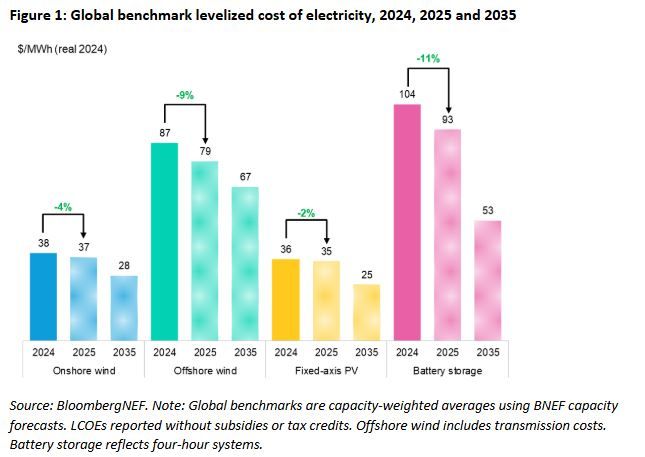
Given the media circus around nuclear & CCS, this is a timely analysis from BNEF that new wind & solar are already undercutting new fossil plants in almost every market globally.
Cost of clean technologies are expected to fall further by 2-11% this year💰
about.bnef.com/blog/global-...
07.02.2025 09:45 — 👍 40 🔁 17 💬 2 📌 1
...time and public funding are limited.
CCS is receiving billions in subsidies while electrification receives next to nothing.
If we're developing solutions alongside each other, it surely makes sense to go big, now, on the ones that can already be deployed at scale and with less financial risk.
27.01.2025 11:30 — 👍 3 🔁 1 💬 0 📌 0
CCS has a role, e.g. in chemicals and cement, and potentially for dispatchable power.
And yes, it's a nascent industry with high costs right now that are due to come down.
BUT...
27.01.2025 11:30 — 👍 1 🔁 0 💬 1 📌 0
Steel will not use CCS.
Low temperature heat and light manufacturing will likely electrify.
Ceramics will achieve 85% of emissions reductions without CCS.
Glass will use electrification and hydrogen, with CCS for only the biggest plants.
27.01.2025 11:30 — 👍 0 🔁 0 💬 1 📌 0
At best, CCS will be one of many solutions. To call it the only way to protect our industrial heartlands is grossly misleading and ignores the fact electrification will decarbonise more than half of the UK's industrial activity.
Electrification will also be far cheaper for business and the public.
27.01.2025 11:30 — 👍 0 🔁 0 💬 1 📌 0
In this article the 'offshore energy' association @oeuk.bsky.social say CCS 'is the only way to protect heavy industrial activity and the jobs they support in our industrial heartlands.'
This is simply not true and plays off fears around job losses.
Short thread...
27.01.2025 11:30 — 👍 8 🔁 3 💬 1 📌 1

The UK's clean power mission: Delivering the prize
UK government can both achieve its Clean Power 2030 mission and bring down electricity bills for households.
But we don't need a 'renewable' fuel that's not really renewable to meet our renewable energy goals.
For the detail this deserves read the full report here: www.e3g.org/publications...
And follow @e3g.bsky.social @susieelks.bsky.social @edmatthew.bsky.social @elliemaeohagan.bsky.social
22.01.2025 11:21 — 👍 4 🔁 1 💬 1 📌 0
Our report charts a pathway to clean power that is based on:
- Expanded renewables
- Greater demand flexibility (smart technologies and tariffs)
- Long-duration storage
- Green hydrogen for dispatchable power
The catch? Policy change is absolutely fundamental - especially to cut bills.
22.01.2025 11:21 — 👍 1 🔁 0 💬 1 📌 0
The government has therefore been reluctant to let go of bioenergy as a source of 'renewable' capacity, despite what the science tells us.
But our analysis with @baringa.bsky.social shows this capacity can be found elsewhere, and at the same time as reducing bills!
22.01.2025 11:21 — 👍 1 🔁 0 💬 1 📌 0
The bioenergy lobby say they are crucial to the clean power mission, as bioenergy is a source of 'renewable' dispatachable power (electricity generation that can start on demand).
And as we know, we'll need on-demand low carbon power in a system dominated by variable renewables.
22.01.2025 11:21 — 👍 0 🔁 0 💬 1 📌 0
At the moment, 4% of our electricity comes from burning wood to generate power - mostly at Drax power stations.
This practice is labelled 'renewable' (8% of renewable power in fact), but there's considerable evidence that burning wood pellets shipped halfway round the world isn't clean.
22.01.2025 11:21 — 👍 1 🔁 0 💬 1 📌 0
Professor @goldsmithsuol.bsky.social, Director of @goldperc.bsky.social - occasional contributor to @lrb.co.uk and others.
Subscribe for latest writing etc at Williamdavies.blog
Energy bills campaigner and community activist. Fuel Poverty Director at Croydon Community Energy. Former engineer, current dyspraxic.
🐙 Energy research institute, founded by the Octopus Energy Group. Operating autonomously.
⚡️ Advancing tech-enabled energy systems that benefit humanity.
📊 Check out our research, papers & data: www.centrefornetzero.org
Editorial Director and Senior Policy Fellow, European Council on Foreign Relations (@ecfr.eu)
https://ecfr.eu/profile/jeremy-cliffe/
Sustainable finance at @e3g.bsky.social. Previously Greenhouse Communications.
🌹 Labour MP for Tooting
👩⚕️ A&E Doctor
🏡 Born and raised in Tooting
📧 rosena@drrosena.co.uk "Rosena" rhymes with "tenner" (she/her)
Promoted by Tooting Labour Party, at 89 Bickersteth Road, SW17 9SH
Senior Comms @e3g 🌿 - views own
UK Programme Director for independent climate change think tank E3G
Steel decarbonisation and industrial policy | PhD Candidate | Technology & Society, Lund University, Sweden | Skriver i Flamman
I write words good (journalist, author, radio person, etc) marie.s.leconte@gmail.com
National Emergency Briefing on the climate & nature crisis www.nebriefing.org | Science communicator | former manufacturing CEO & business consultant | Moog 🎹
Editor and CEO, Zeteo
Author, ‘Win Every Argument’
British-American
The Center for American Progress is dedicated to improving the lives of Americans through ideas and action. https://secure.actblue.com/donate/center-for-american-progress-1
Senior Fellowing @AmericanProgress. Formerly @BGAlliance. Former local elected official. All opinions mine… I hope.
An alliance of leaders from business, academia and civil society that drives action for a sustainable economy.
https://www.aldersgategroup.org.uk/
Host @CleaningUpPod. CEO Liebreich Associates. Managing Partner Ecopragma Capital. Founder, Contributor @BloombergNEF. Ex Board TfL, Board of Trade. Olympian. Don't message me - I'm not prepared to give away personal data to prove my age. Srsly BlueSky!
Helping cities make big ideas happen. A program of
@worldresources.bsky.social. Producer of http://TheCityFix.org. Home of #PrizeForCities.
Welcome to our official account 👋 Follow for the latest news, research and updates about life at Oxford.











